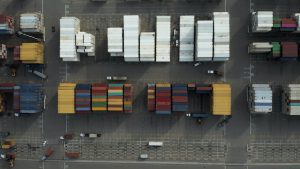
US Agricultural shippers’ complaints that container lines are refusing export bookings in favor of higher-paying imports have reached the ear of the federal government, but there are no “easy fixes,” Pete Buttigieg, the US Department of Transportation (DOT) secretary, said in late March to the House Transportation and Infrastructure Committee. Buttigieg told legislators that this issue is part of the larger supply chain concerns that the administration is considering.
“Some of this might involve wandering a little outside the lane in what the Department of Transportation does, but it’s another example of where we need to be collaborating and coordinating with other partners in the administration to make sure we have a whole-of-government approach,” he said. The Biden administration recently proposed a $3 trillion infrastructure stimulus package that could help with increasingly urgent US port congestion. The plan could also include federal investment in infrastructure projects that leverage private investment in intermodal rail ramps in the interior, where export flows outweigh imports.
Currently, carriers lack the incentive to reposition a given container to interior locations, instead opting to return it as quickly as possible to Asia, where it can be filled with an import load that earns four to five times as much revenue as the export load. Shipper groups such as the US Agriculture Transportation Coalition and the National Fireworks Association have pleaded for intervention, leading to a federal regulatory probe of carriers’ alleged rejection of exports, but Federal Maritime Commissioner Carl Bentzel told JOC that the burden of proof showing that carriers weren’t honoring their common carriage responsibilities under shipping law was high. The more focused investment could provide the infrastructure to support export capacity, but meanwhile, the federal government seems to have limited options to relieve the complaint.